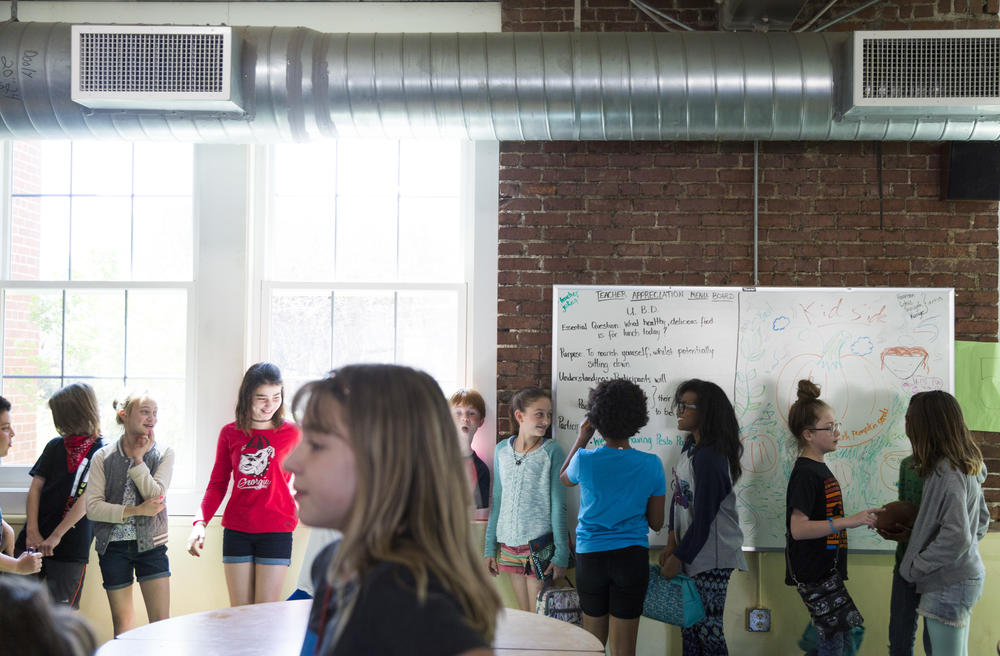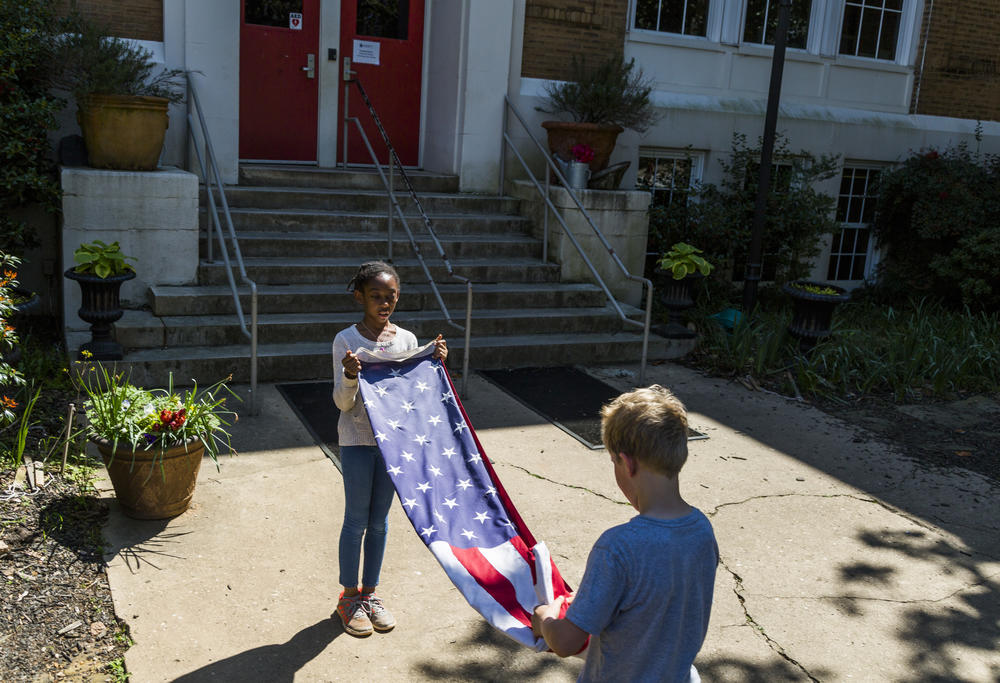Section Branding
Header Content
Is This A Fix For White Flight Charter Schools?
Primary Content
All the open seats at the Academy for Classical Education were gone by the time Sammy Smith’s daughters’ names were pulled in the school’s admissions lottery.
By then it was all about the waiting list for the parents still hanging around the ACE cafeteria on a day in February.
“They’re at Springdale now, which is decent,” Smith said of his daughters. “We just prefer the classical education.”
Is This A Fix For White Flight Charter Schools?
Actually, Springdale Elementary outperforms ACE academically, but about half of Bibb County’s other elementary schools are considered failing by the state. By the time it got to waiting lists, it was hard to find parents from those schools in the room.
ACE principal and co-founder Laura Perkins dropped in to watch the lottery. One school of thought holds that charter schools should be for students from struggling schools first and foremost. Perkins said she couldn’t make that happen if she wanted to.
“We don’t have any control over that,” Perkins said. “The charter rules don't allow you to do any of that.”
That’s not true.
The Utopian Academy Act, went into effect in Georgia last year. It allows charter schools to give better numerical odds to disadvantaged students in admissions lotteries. While the law bears the name of a charter school in Clayton County, Atlanta Neighborhood Charter School executive director Matt Underwood said it was his school that wanted weighted lotteries.
“I see this as a no brainer to use,” Underwood said.
Atlanta Neighborhood Charter School is in the rapidly gentrifying Grant Park neighborhood. Underwood said since race often correlates to poverty, the weighted lottery is the tool his school wanted to help ensure gentrified doesn’t turn into segregated.
“In some small way our focus on using the flexibility that we have as a charter school is our way of trying to kind of fight against that and also to show the power of having a diverse school,” he said.
ANCS gave economically disadvantaged kids four times better odds of getting into kindergarten in this year’s lottery. That took the percentage of kindergarteners coming from poverty from 9 percent to 20 percent. The prior 15 years of marketing to families, which the Georgia Department of Education prefers to weighted lotteries, couldn’t make that happen.
Weighted lotteries aren’t mandatory for Georgia charter schools. In fact, ANCS is so far the only charter school in Georgia to have used one. That might change now that the Georgia Department of Education has told charters they must have a formal plan for diversity either when they are first chartered or when their charters are renewed.
So who is this for? In Macon almost 40 percent of school-aged kids live in poverty. At the Academy for Classical Education only 10 percent live in poverty. The school is also 73 percent white, taking in about a quarter of the Bibb County School District’s white students. Over on the coast in Chatham County, blacks are twice as likely to live in poverty than whites, but the Tybee Island Maritime Academy charter school is 80 percent white. In Greene County, blacks are three times as likely to live in poverty, but Lake Oconee Charter is 79 percent white.
Brian Beabout teaches educational leadership at the University of New Orleans and is a board member of the National Coalition of Diverse Charter School, of which Atlanta Neighborhood Charter is a member. He said there’s a name for demographically upside down charter schools.
“People have called those ‘white flight academies’ in that they are simply ways for middle class populations to sort of create a publicly financed private school,” he said. “I think they ought to face some public pressure.”
But Beabout wonders if pressure is enough to change a school.
“Is there public will to to move in one direction or the other?” he asked.
It was a busy morning at ACE about a month after the lottery. There was a fire drill on the way, but Laura Perkins still took time for one more conversation. Even with the option of a weighted lottery, she still bristled at the idea of giving poor kids better odds of getting through the front door.
“It's not my job to to say you need it more than I need it,” she said. “I’m just not full enough of myself to say that.”
Still, she said she might look at a weighted lottery.
“We’ll put it before the governing board and give it a whirl.”
Of course parents could ask for one when the Academy for Classical Education’s charter comes up for review in two years.



